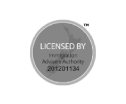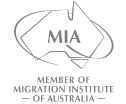For the globally-minded investor, the world is a chessboard. Each move is a calculated decision to secure family, preserve wealth, and create a legacy. You’ve built your success across international markets, but in an era of increasing geopolitical uncertainty, the search for a true “safe harbor”—a stable, strategic Plan B for your family and capital—has become more critical than ever.
Yet, this search is often fraught with frustration. Most investment migration programs feel designed for another era, demanding months of your physical presence, imposing arbitrary age or language hurdles, and forcing your capital into structures that don’t align with a mature, wealth-preservation-focused portfolio.
But what if there was a different playbook? A proven, albeit controversial, path taken by one of the world’s most talked-about tech investors? We’re talking about Peter Thiel. His successful, fast-tracked New Zealand citizenship, shrouded in secrecy for years, offers a masterclass in strategic positioning.
This isn’t about celebrity gossip. This is a strategic dissection of the redacted documents from Thiel’s application. By unpacking his playbook, we can reveal the core calculus of New Zealand’s approach to high-value individuals and, more importantly, a modern, structured path for investors like you.
The Billionaire’s Shortcut: Bypassing the 1,350-Day Rule
The cornerstone of most citizenship programs is physical presence—a non-starter for anyone running a global business or family office. The standard path to New Zealand citizenship requires you to be physically present in the country for at least 1,350 days over the preceding five years.
Peter Thiel was present for just 12 days.
This fact, revealed in a 140-page file released after a significant push for transparency, is the single most compelling piece of the puzzle. Thiel’s application bypassed the standard residency requirements entirely. How? He leveraged a little-known discretionary power held by the Minister of Internal Affairs. This provision allows for a grant of citizenship under “exceptional circumstances” that are deemed to be in the “public interest.”
Essentially, Thiel’s team argued that his value to New Zealand was so significant that the standard time commitment was irrelevant. The minister at the time, Nathan Guy, agreed, stating that Thiel’s case was “an exceptional situation” and that his entrepreneurial skills and philanthropic track record were deemed to be of great value to the country.
More Than Money: Deconstructing Thiel’s “Exceptional” Value Proposition
The redacted documents show that Thiel’s application was not a simple financial transaction; it was a carefully constructed narrative. It wasn’t about buying a passport, but about demonstrating a level of contribution that transcended a simple investment. For a global strategist focused on deploying capital productively, the arguments are illuminating.
The Strategic Investor Argument
Thiel didn’t just promise future investment; he highlighted his existing, tangible contributions. His application detailed his role as a key early investor in some of New Zealand’s most successful tech companies.
- Xero: He was an early and significant backer of the cloud accounting software firm that became a global powerhouse.
- Vend: He invested in the point-of-sale software company, which was later acquired for a substantial sum.
- Valar Ventures: The documents showed his venture capital firm had made a series of investments in New Zealand companies, solidifying his commitment to the local tech ecosystem.
This wasn’t passive capital. It was active, value-add investment in sectors of strategic importance to New Zealand’s economy.
The “Ambassador” Value Proposition
Beyond direct investment, Thiel’s application positioned him as an unofficial ambassador for New Zealand on the world stage. The argument was that his association with the country, his global network, and his influence would attract other high-caliber talent and investment. The application effectively stated that his citizenship would act as a powerful signal to the international investment community, placing New Zealand firmly on their radar.
This speaks directly to the desire of a sophisticated investor to be more than just a number—to contribute expertise and networks in a way that makes a genuine impact.
A Direct Solution to The Global Strategist’s Pain Points
The Thiel case is a fascinating case study precisely because it provides a near-perfect solution to the most significant frustrations faced by established global investors.
- The Physical Presence Dilemma: Thiel’s 12-day presence demonstrates a fundamental understanding by New Zealand’s officials (at least in exceptional cases) that the value of an individual like you is not measured by time spent on the ground. This starkly contrasts with Australia’s Significant Investor Visa, which requires 40 days per year, or the UK’s former Tier 1 Investor path, which had strict limits on days spent abroad for settlement.
- Sidestepping “Insulting” Hurdles: There was no discussion of age limits, English tests, or a need to prove “business experience.” Thiel’s track record and the scale of his capital spoke for themselves. His citizenship grant was a recognition of his established success, aligning perfectly with the mindset of a global strategist who expects their achievements to be the primary qualification.
The Modern Playbook: From Controversial Exception to a Structured Path
While Thiel’s path was effective, it was also opaque and generated controversy. This is a risk that a family-focused strategist would rightly seek to avoid. The good news is that New Zealand’s system has evolved.
The playbook has been clarified, refined, and codified into a new program: the Active Investor Plus Visa. This visa takes the principles revealed in the Thiel case and provides a clear, transparent, and structured framework to achieve a similar end goal—without the public-relations headache.
Clarity and Simplicity: The New Two-Tier System
The old, complex system has been replaced. The Active Investor Plus Visa offers two primary, easy-to-understand pathways for an NZ$15 million investment (or weighted equivalent):
- Direct Investments: For those comfortable with higher-growth ventures.
- Listed Equities and Philanthropy: A more balanced, risk-managed approach.
This clarity removes the bureaucratic complexity that deters high-caliber applicants.
Addressing the Risk Mismatch: The “Balanced” On-Ramp
For an investor whose primary focus is wealth preservation, being forced into high-risk, early-stage ventures is a non-starter. The Active Investor Plus Visa elegantly solves this. It allows a significant portion of your investment to be placed in familiar, lower-risk assets like bonds and listed equities on the NZX. This provides the perfect “on-ramp”—enabling you to enter the market with confidence while offering incentives, like a lower total investment amount, to explore direct private equity over time. This structure shows a deep understanding of a mature investor’s mindset.
Unprecedented Flexibility: The 117-Day Requirement
The core advantage remains. The new visa requires a physical presence of just 117 days over the entire four-year investment period. This is the structured, official version of the flexibility Thiel was granted by exception. It’s a clear signal that New Zealand values your global mobility and understands that your contributions are not contingent on being landlocked. It is arguably the most flexible HNW residency program in the developed world.
The Enduring Strategic Prize: The Trans-Tasman Advantage
Ultimately, the grand prize of New Zealand citizenship is strategic access. Once citizenship is secured, you gain the right to live, work, and study not just in New Zealand, but also in Australia, under the long-standing Trans-Tasman Travel Arrangement.
This is the ultimate “one stone, two birds” strategic advantage—securing a foothold in two of the most stable, high-quality-of-life countries in the Asia-Pacific region.
Your Playbook for a Secure Future
The Peter Thiel citizenship files do more than satisfy curiosity; they reveal a core philosophy. They show a nation that is willing to be pragmatic and flexible to attract truly exceptional individuals.
While his path was a bespoke exception, the underlying principles have now been forged into the Active Investor Plus Visa—a program that seems tailor-made for the Global Strategist. It acknowledges your need for flexibility, respects your focus on wealth preservation, and provides a clear, structured path to a powerful strategic goal for your family and your capital.
In your search for stability, it’s not just about finding any safe harbor, but about finding the smartest one. New Zealand has made its move on the chessboard; the next move is yours.










